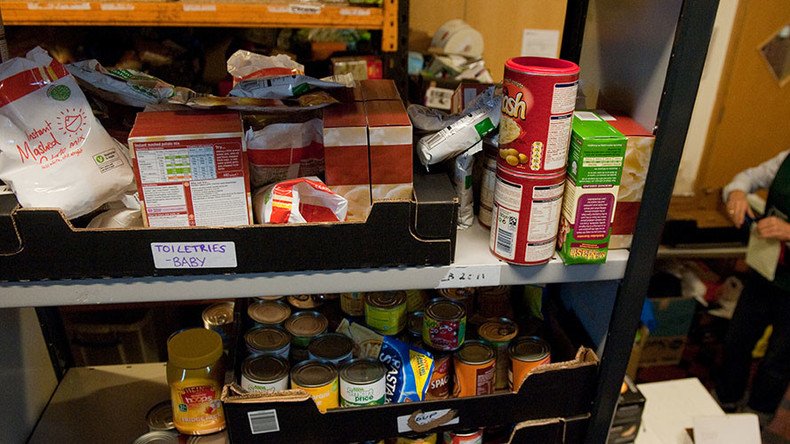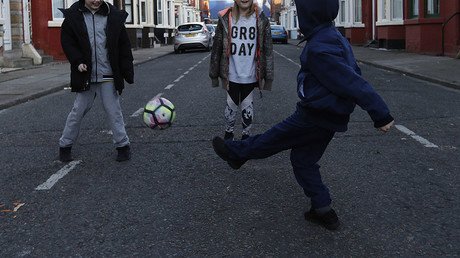Half of children who use food banks over summer are primary school age

Half of the children using food banks during the summer vacation are of primary school age, and 27 percent are under the age of five, research by the Trussell Trust shows.
The trust, which runs the largest network of food banks for impoverished Britons, found that 47 percent of those who rely on three-day emergency food packages are aged between five and 11 years while 27 percent are under five.
The research also shows that 67,500 food packages were handed out between July and August 2016 – 4,000 more than during the previous two months.
“As a nation, we also must address the reasons why families with children are referred to food banks in the first place,” Samantha Stapley, operations manager for England at the Trussell Trust, told the Guardian.
“We welcome the government’s decision to maintain free school lunches for children during term time – the next step must be to help families during the holidays,” she said, adding that the figures showed “just how close to crisis many families are.”
Other charities also spoke out about the new statistics.
Imran Hussain, advocacy director at Child Poverty Action Group, told the paper: “Children are twice as likely to be poor than pensioners.
“The poverty rate for children is 30 percent and for pensioners it’s 16 percent. The trajectory for child poverty is that it will hit 5 million by 2022.
“We need to make sure a basic level of benefits is there to meet the needs of children – that is a chronic issue that needs tackling.”
New @TrussellTrust stats show primary school children at risk of #holidayhunger & foodbanks helping more than ever >>https://t.co/ZxkrK9ljv3
— The Trussell Trust (@TrussellTrust) July 25, 2017
The government did not comment directly on the findings but insisted that “record numbers of people are now in work and we’re helping millions of households meet the everyday cost of living and keep more of what they earn.
“We’ve doubled free childcare to help parents into work, and continue to spend over £90 billion [US$118 billion] a year on support for those who need it, including those who are bringing up a family or on a low income,” a spokesman told the Guardian.














